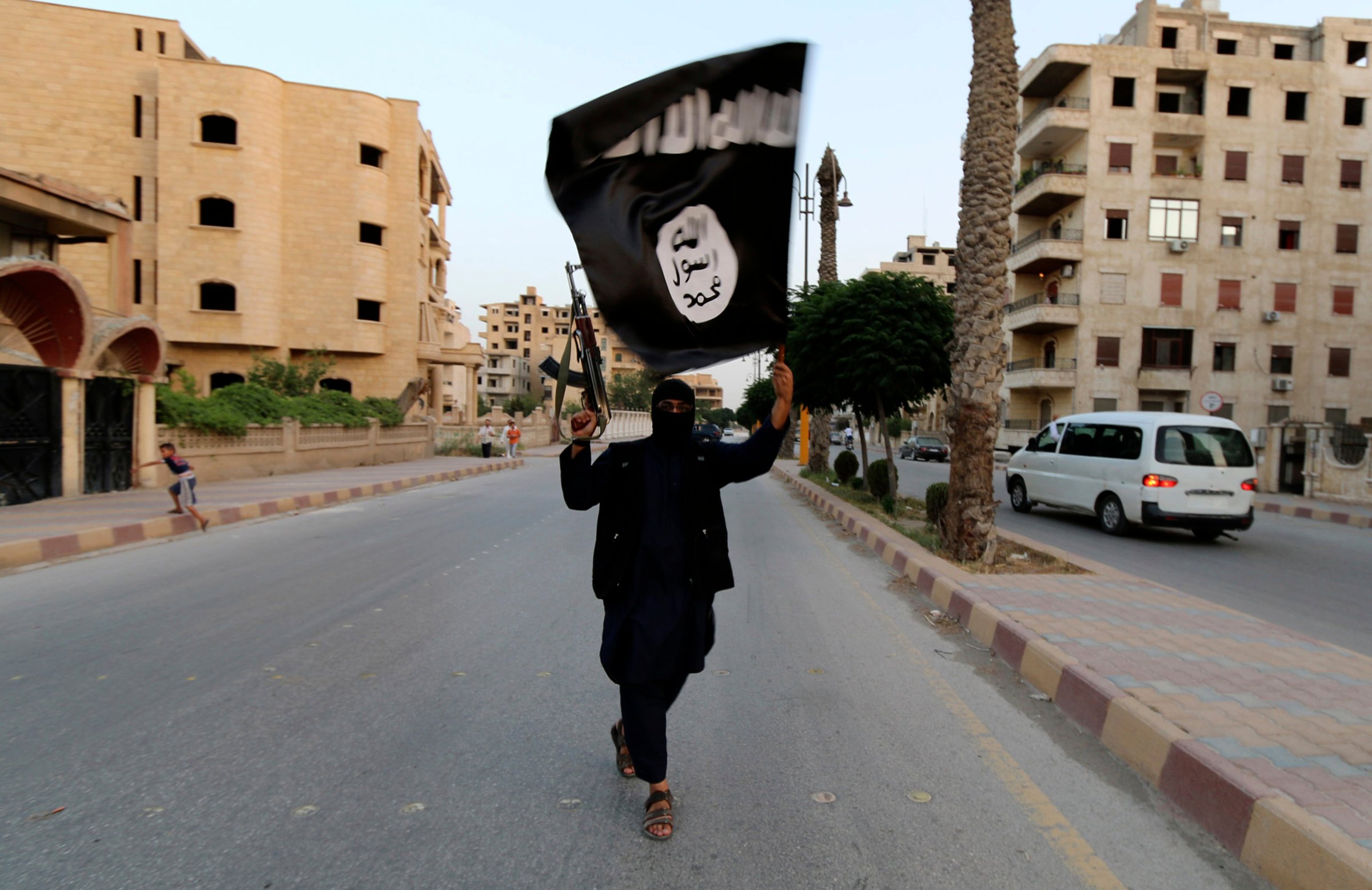
The U.S. is shoring up support across the Middle East for its mission to destroy the Islamic State of Iraq and Greater Syria (ISIS), but the militants seem unfazed by the broadening coalition against them.
“We welcome America into Syria with open arms… and an explosive belt,” tweeted a man calling himself Abu Abdullah Britani.
Since President Barack Obama announced U.S. forces would not hesitate to hit the militants inside Syria, nearly 40 nations have pledged to join the coalition. Increasingly, both regional and international states fear the threat of the expansionist Jihadis.
Yet for now, little has changed in the militants’ strategy. “ISIS is responding by not backing down, ” said Christopher Harmer, a senior analyst with the Institute for the Study of War, who served several tours with the U.S. army in Iraq. That might be due, in part, to the fact that this coalition is so far more about moral support than military backing. The U.S. is the only external state yet to have acted against the group.
“Every nation state in the world is willing to stand up and say, ‘ISIS is evil. I think ISIS sucks’,” said Harmer. “ISIS doesn’t give a tin s–t about what the U.N. says or what the [Gulf Cooperation Council] says. All they care about is what is actually happening to them.”
And perhaps for these militant fighters the mere fact that they have earned such a broad coalition of opposition is a source of pride. Despite over a month of U.S. strikes and ground operations by Kurdish peshmerga and Iraqi national forces, the progress against the group has been limited.
One ISIS sympathizer, who tweets in both English and Dutch, appears to welcome the U.S. involvement. “Ya Allaah give us the Honour to Fight the US face 2 face. The problem is they can’t face us only with planes:P,” he wrote on social media. His profile says of the United States military: “They lost the war in Afghanistan, there was NO Mission Accomplished in Iraq, They are just wasting there [sic] Economy.”
Despite the promise of air strikes and weapons for ISIS rivals, those sentiments of defiance have been echoed by militants on the ground, along with threats against states joining the coalition. In the most recent video, believed to show the gruesome murder of British aid worker David Haines, the black-clad killer says in an English accent that the execution is ISIS’s response to the U.K. sending weapons to Kurdish forces to fight them. Other sites have posted broader messages threatening countries that join the coalition.
And even if the intensifying air campaign pushes ISIS off military fronts with the Iraqi, Kurdish, and Syrian force, the militants could be driven to hide amongst the civilian population of the urban centers—like Mosul—that are under their control.
Then the group could easily return to the traditional methods of terrorism, such as IEDs and suicide bombings, that it used before becoming a well-organized militant movement with state-building aspirations. The group has thousands of members eager to die for their cause.
“Stop threatening me with drone strikes and death. That’s like threatening a fat American with a visit to McDonalds and a Big Mac,” tweeted one self-identified militant, who calls himself Abu Turaab and put his location as inside the Islamic Caliphate.
The U.S. needs an international coalition or regional allies both to lend legitimacy to their military operation, and to provide bases and on-ground training where the U.S. won’t go. But key in battling ISIS will be getting other Sunni militant groups to fight against them. However, the appearance of a broad U.S.-led coalition, backed by many western nations, will not be appealing for most armed Sunni groups and may instead increase resentment against the West, rather than bring others on side. The U.S. has been assisting the Free Syrian Army, who have been battling both Syrian President Bashar Al-Assad and ISIS, but in Iraq allies have been harder to find.
“In the face of this new coalition, [these groups] aren’t coming out against ISIS any more than they were before. On the contrary, the focus of their rhetoric is on the air strikes,” said Aymenn al-Tamimi, an expert on Syrian and Iraqi militants with the Philadelphia-based Middle East Forum.
In a rare joint statement, al-Qaeda in the Islamic Maghreb (AQIM) and al-Qaeda in the Arabian Peninsula (AQAP) condemned the U.S.-led alliance in Iraq and Syria and called on the fractured and battling Jihadi movements of Syria to unite against the shared enemy. “Stop the infighting between you and stand as one rank against America’s campaign and that of its satanic alliance,” said the statement, according to a translation by the Jihadi monitoring group SITE.
The U.S. faces an uphill battle convincing other Sunni groups that the enemy of their enemy is their friend, al-Tamimi said. “It’s not looking good. As part of its strategy the U.S. wants to find Sunni allies on the ground who can help build up an internal revolt against ISIS,” he said. But Iraqi insurgents that have tensions with ISIS aren’t convinced. The Islamic Army in Iraq’s spokesman has said the coalition intends to target Muslims under the pretense of a new war on terrorism.
“If [these groups] are going around saying this is war against Islam,” says al-Tamimi, “then there is not much hope for that right now.”
More Must-Reads from TIME
- L.A. Fires Show Reality of 1.5°C of Warming
- Home Losses From L.A. Fires Hasten ‘An Uninsurable Future’
- The Women Refusing to Participate in Trump’s Economy
- Bad Bunny On Heartbreak and New Album
- How to Dress Warmly for Cold Weather
- We’re Lucky to Have Been Alive in the Age of David Lynch
- The Motivational Trick That Makes You Exercise Harder
- Column: No One Won The War in Gaza
Contact us at letters@time.com